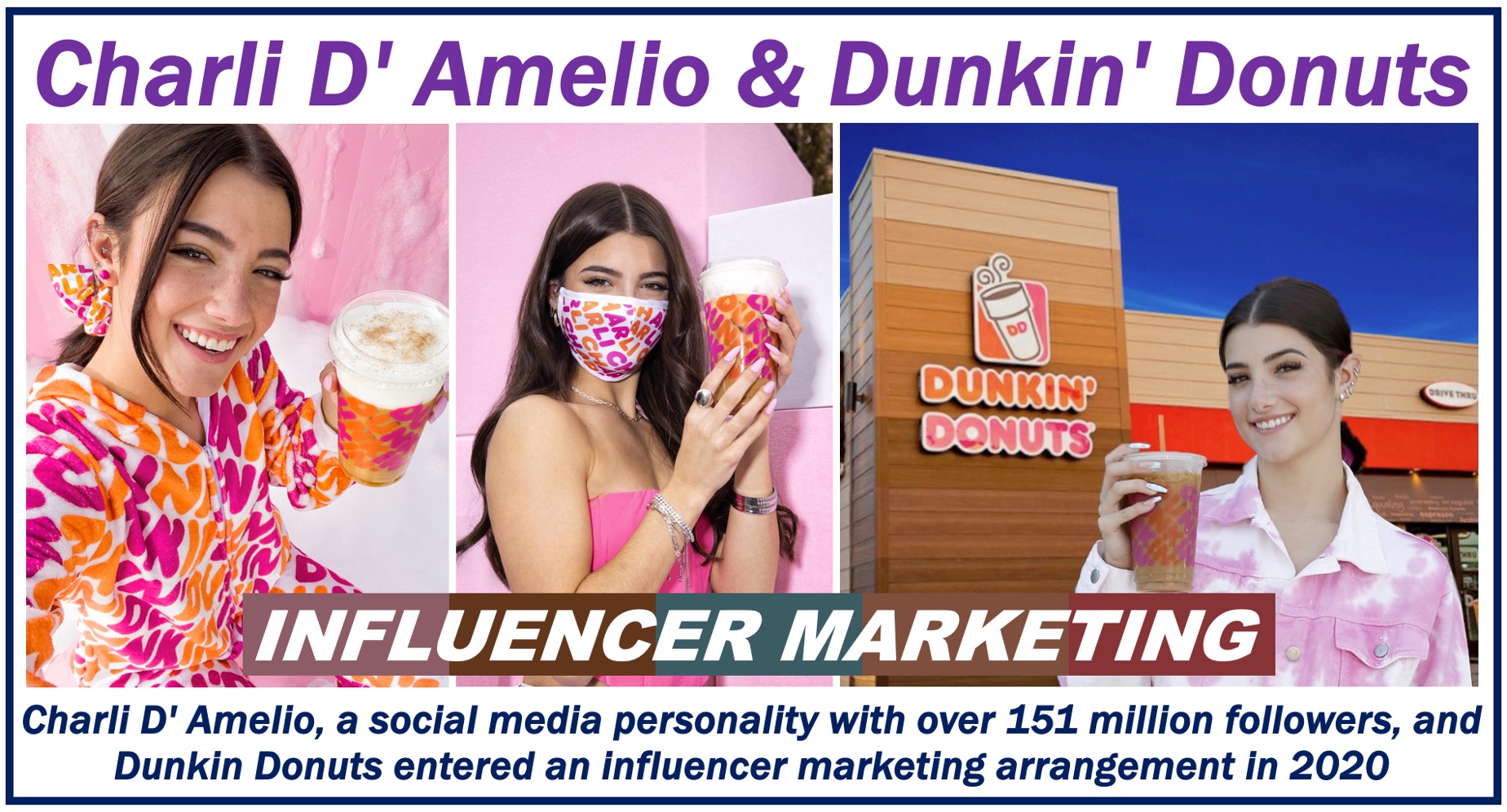Influencer Marketing is a type of marketing where brands hire social media influencers to promote products and services to their fanbase or following. This style of marketing has become very popular with the rise of social media like Instagram, TikTok, etc.
People look to influencers for recommendations on everything from skincare products, to household items, clothing, and more. Because they seem more like everyday people, hearing about a product from a social media influencer feels like a recommendation from a friend.
How is influencer marketing changing the marketing industry?
Influencer marketing is part of a new wave of marketing that has taken hold in recent years. Gone are the days of people choosing products to purchase based on traditional marketing avenues like television commercials, magazine ads, and billboards.
A lot of this has to do with the changes in the way customers consume content. Brands of all kinds are having to change their overall marketing strategy to embrace social media influencers as the main vehicle to reach their target audience rather than the more traditional channels.
Most people watch television using a streaming service that most likely has no commercials, or at least the ability to fast-forward through them. Many people no longer commute to their offices, so they aren’t seeing billboards daily either. This has changed the marketing landscape drastically.
In the past, big brands would put a lot of advertising budget into creating flashy commercials and advertisements to reach their target audience. Today, most brands will have better luck with an influencer talking about their product in their bathroom on Instagram stories.
Consumers today need to feel more connected to the products that they purchase, so those highly produced, glossy advertisements just don’t work anymore. They want to hear how things work from someone that they can trust or want to be like.

Why does influencer marketing work?
Social media influencers have become everyone’s “internet best friend”. There are influencers for almost every niche from stay-at-home moms to fishing enthusiasts and everything in between. There are influencers for every interest and lifestyle you could think of.
Because social media influencers are so niche-specific, their following is usually a highly specific demographic. This is a huge asset to influencer marketing because it enables brands to work with influencers who directly impact the exact people who will need or want their products.
“80% of marketers find influencer marketing effective”, according to a research made in 2019 by Mediakix.
For example, if a skincare brand is launching a new anti-aging line for women, they can seek out influencers who reach women in specific age, income, and interest brackets that would be most likely to purchase skincare. This level of fine-tuning could never be done with traditional marketing.
Consumers are finding these influencers and connecting with them because of their similarities or because they aspire to be like them. When influencers recommend a product that they love, their followers are running out to buy these items in droves.
Companies are beginning to realize that influencer marketing is the way to quickly build loyal customers. If they align with influencers who support their brand and represent their target audience, the sales typically roll right in.
What is important to know about influencer marketing?
Although influencer marketing is a way to reach a highly targeted audience, it is not foolproof. Not all influencers are created equally, so brands must fully vet influencers before partnering with them. The key is to find influencers who are truly passionate about the product.
There are countless influencers with large followings who may promote a wide range of products. This sometimes can feel inauthentic to their audience and may cause their followers to be less likely to buy based on their suggestions.
That is why, “mega” influencers have lost value in recent years, audiences respond better to more niche and targeted influencers, or micro-influencers as they are commonly called, this found on an report published by Launchmetrics in 2018.

It’s important that the influencers who represent any brand are regular users of the product and can show that authentically. The biggest hallmark of social media is authenticity. It is a place for people to be themselves and when anyone including influencers are inauthentic, it shows.
Just because influencer marketing is more of an informal style doesn’t mean that there shouldn’t be a strategy behind it. Consumers are smart. If they see several influencers promoting the same products in the same way, they may be skeptical.
The key to influencer marketing is to find reliable, trustworthy influencers who represent the values of the brand and genuinely use and like the product. Influencers are the new brand ambassadors.
Sometimes influencers with smaller followings or who are newer on the scene may be the best choice because they have some of the highest engagement and very loyal followers.
Influencer marketing is here to stay. People spend more time on their phones following the lives of influencers than interacting with their own friends in some cases, so it’s truly one of the best ways to reach people where they’re at.
Many types of marketing
Influencer Marketing is just one literally dozens of different types of marketing approaches. Here are ten very popular ones:
- Event Marketing: Marketing/selling goods and services at events.
- Social Media Marketing: Using social media platforms. to build your brand or promote your product or service.
- Word of Mouth Marketing: The promotion of products or services through customer recommendations and personal experiences.
- Digital Marketing: Promoting products or services via the Internet, i.e., online.
- Content Marketing: Creating valuable content to engage audiences.
- Email Marketing: Sending promotional messages via email.
- Search Engine Marketing (SEM): Increase search visibility through paid ads.
- Affiliate Marketing: Earning commissions by promoting products of other markers/distributors.
- Direct Marketing: Promoting your product or service by going straight to the customer, consumer, or prospect. A ‘prospect’ is somebody who you think could well become a paying customer.
- Guerrilla Marketing: Creative, low-cost promotional tactics.

